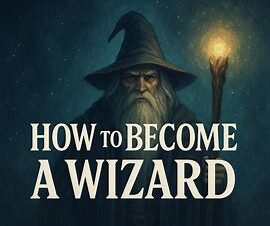“The Path Ahead — Integration and Commitment”
🎯 Learning Objectives
By the end of this section, you should be able to:
- Integrate the key themes of Lecture 1 into a unified vision of wizardry.
- Recognize the path of wizardry as both study and lifestyle.
- Commit to daily practice, ethical responsibility, and service as foundational pillars.
- Understand the role of Indigo Wizardry in guiding deeper reflection and transformation.
- Formulate a personal statement of commitment to the wizard’s path.
📜 Lecture Script
1. The Journey Begins
You have walked through the first nine parts of this lecture. By now, you have learned that wizardry is not fantasy or escape—it is a way of life. It is:
- The pursuit of wisdom.
- The integration of many disciplines.
- The responsibility to live with ethics and service.
- The daily rhythm of practices that sharpen mind and spirit.
- The weaving of nature, knowledge, voice, and community into a unified whole.
This is the first step of a long journey.
2. What Integration Means
Integration is the wizard’s way of weaving the strands into one tapestry.
- Knowledge without ethics is empty.
- Ethics without practice is hollow.
- Practice without community becomes isolation.
- Community without wisdom becomes chaos.
The wizard integrates all: study, practice, service, and reflection.
The Indigo Wizard plays a unique role in this integration, asking: “What is the deeper connection? How does the visible world mirror the invisible?”
3. The Commitments of a Wizard in Training
To move forward, a student must commit. These are not oaths of bondage, but promises to yourself:
- Commit to Learning: Never stop seeking wisdom.
- Commit to Responsibility: Own your actions, words, and choices.
- Commit to Daily Practice: Anchor your path with rhythm.
- Commit to Service: Share your wisdom in ways great or small.
- Commit to Self-Mastery: Strive to know yourself deeply, including your shadows.
Without these, the wizard’s path becomes a hobby. With them, it becomes a life.
4. The Role of Indigo Commitment
For Indigo Wizards, the commitment is not only outward but inward. It is a pledge to:
- Seek truth beyond appearances.
- Recognize patterns and symbols in life.
- Confront illusions and self-deception.
- Align inner vision with outer action.
This makes Indigo Wizardry one of the most challenging yet rewarding paths.
5. The Road Ahead
The lectures that follow will deepen each theme:
- History and philosophy will expand into full courses.
- Tools and symbols will be explored in depth.
- Daily practices will grow into disciplines of mastery.
- Indigo Wizardry will be returned to often as the “higher lens.”
Lecture 1 has given you a foundation. The road ahead is vast, but you now know the direction.
6. Reflection Exercise — Commitment Statement
Take your journal and write a Wizard’s Commitment Statement. It should include:
- Why you are choosing this path.
- How you will live the Wizard’s Code.
- What daily practice you will begin.
- How you will serve your community.
Write it clearly. Date it. Sign it. This marks the formal beginning of your journey.
Example:
“I, [Name], commit myself to the path of wizardry. I will pursue wisdom, act responsibly, practice daily, and serve my community. I will seek truth within and without, and I will live as one who dares to know, to will, to dare, and to serve.”
7. Closing Thought
Wizardry is not about robes, wands, or fantasy. It is about becoming a wise one—a person who sees deeply, acts justly, speaks truth, and serves well. This is the true magic.
As you close Lecture 1, remember: the path is yours. Step forward with courage.
(End of Lecture 1 — next begins Lecture 2, Part 1: The Ancient Roots of Wizardry.)
📚 References
- Zell-Ravenheart, Oberon. Grimoire for the Apprentice Wizard. New Page Books, 2004.
- Grey School of Wizardry. www.greyschool.net
- Buckland, Raymond. Signs, Symbols & Omens. Llewellyn Publications, 2003.
- Aristotle. Nicomachean Ethics. Hackett, 1985.
